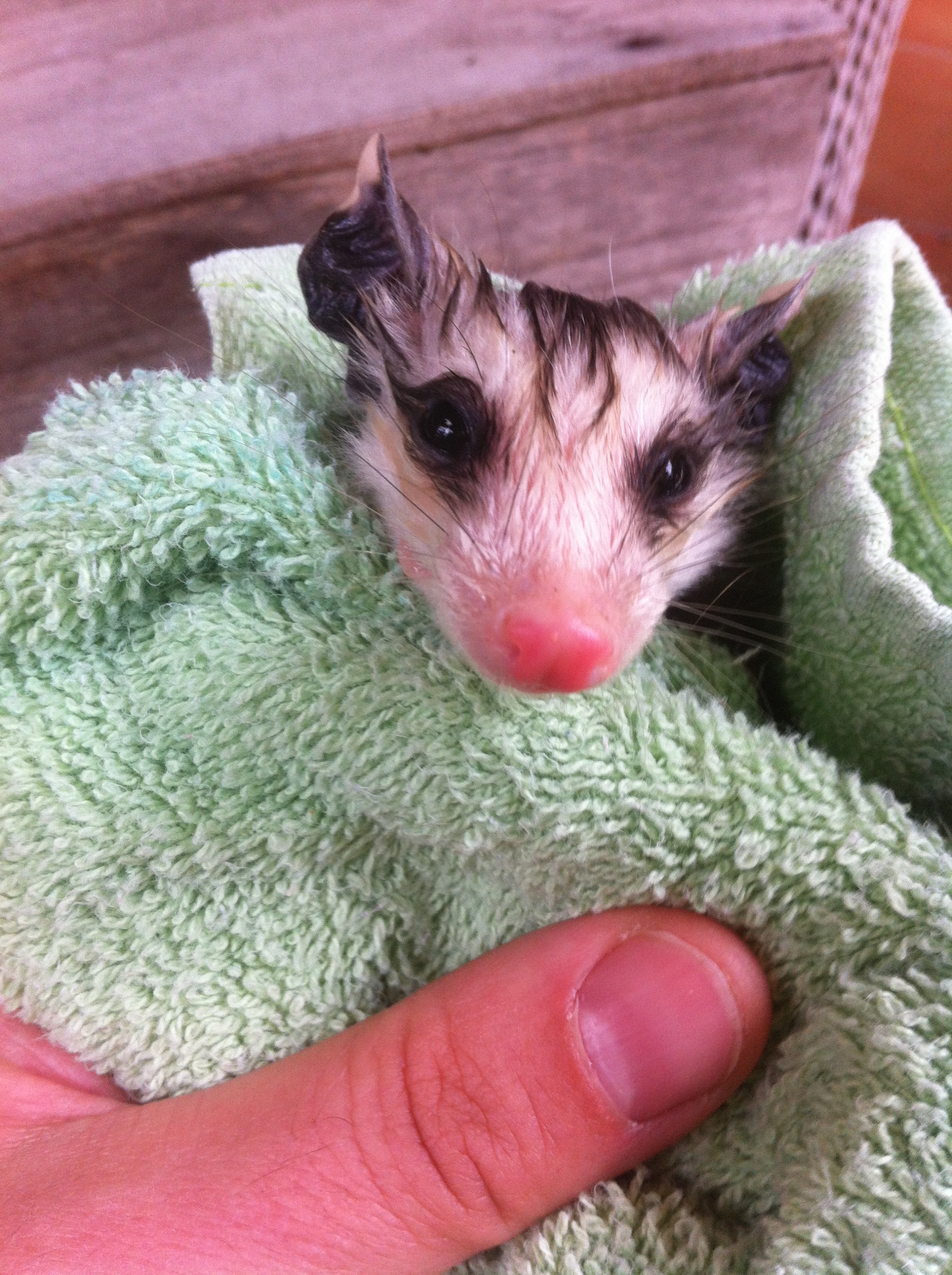Possums in the yard

BY KENNETH SETZER
As published in the Miami Herald, 5/7/15.
Spend a little time in the garden and you are bound to see them, most likely scurrying across your patio or hanging out along the top of a fence. Familiar yet strange, your typical backyard possum may be off putting, but learning a little about them may help you appreciate them a bit more.
After some recent close encounters with possums (Didelphis virginiana), I realized how misunderstood they are; people have strong opinions on them—either love or hate. I suspect the possums’ hairless prehensile tails remind people of rats (another misunderstood animal); those big, reflective, bugged-out eyes set against a stark white face can be a little startling.
Looks aside, possums are pretty harmless. In comparison to the stray cats in my neighborhood, which fight, mate rather noisily, knock over flowerpots, kill native animals and spray at my doorstep, possums are inoffensive.
Possums are a living vestige of a time when marsupials were far more common in North America. Now only the possum remains to represent marsupials in North America north of Mexico. The modern-day possum has traveled alongside humans and can be found as far north as Canada; there’s even a population in California.
True omnivores, they consume fruit, vegetation, insects, small reptiles, amphibians, carrion and pet food. They consume large numbers of ticks, a service for us. As long as they can access our castoffs and garbage, they can follow humans nearly anywhere.
But perhaps there’s more to people’s dislike for the possum, maybe some incorrect beliefs about them. When they perceive a threat, their first defense is to open their mouths to display the 50 sharp teeth they possess. If that’s not enough, they are known to growl and hiss.
But it’s mostly bluff. They are not aggressive animals, and are actually very wary of humans. Of course, they are wild animals and will probably bite if you grab one. If attacked, one of their tactics is “playing possum,” i.e. pretending to be dead—not exactly ferocious.
Possums and disease are mentioned together a lot. Like any wild animal, possums contend with lots of parasites, and are susceptible to the diseases other animals are, but not more so. And while any mammal can be infected with rabies, The Humane Society of the United States notes “rabies is extremely rare in opossums, perhaps because they have a lower body temperature than other warm-blooded animals.”
If you see possums in your garden, chances are they are simply passing through. They will search for food at night and hole up during the day. They are also not likely to tear up and destroy your garden; they seem to prefer rotting fruit over fresh, though I can imagine they would eat just about anything if hungry enough.
If you need to discourage them from visiting, remove woodpiles or areas with excessive brush where they might reside, and don’t leave dog or cat food outdoors. Close access to areas under your house, in sheds, garages or attics. Otherwise, leave them alone and they will go on their way.

An immature possum rescued from a suburban swimming pool
These mostly terrestrial animals show remarkable resistance to snake venom, bee and scorpion stings and even to ricin poisoning. Maybe they’ll share their secrets with us.
